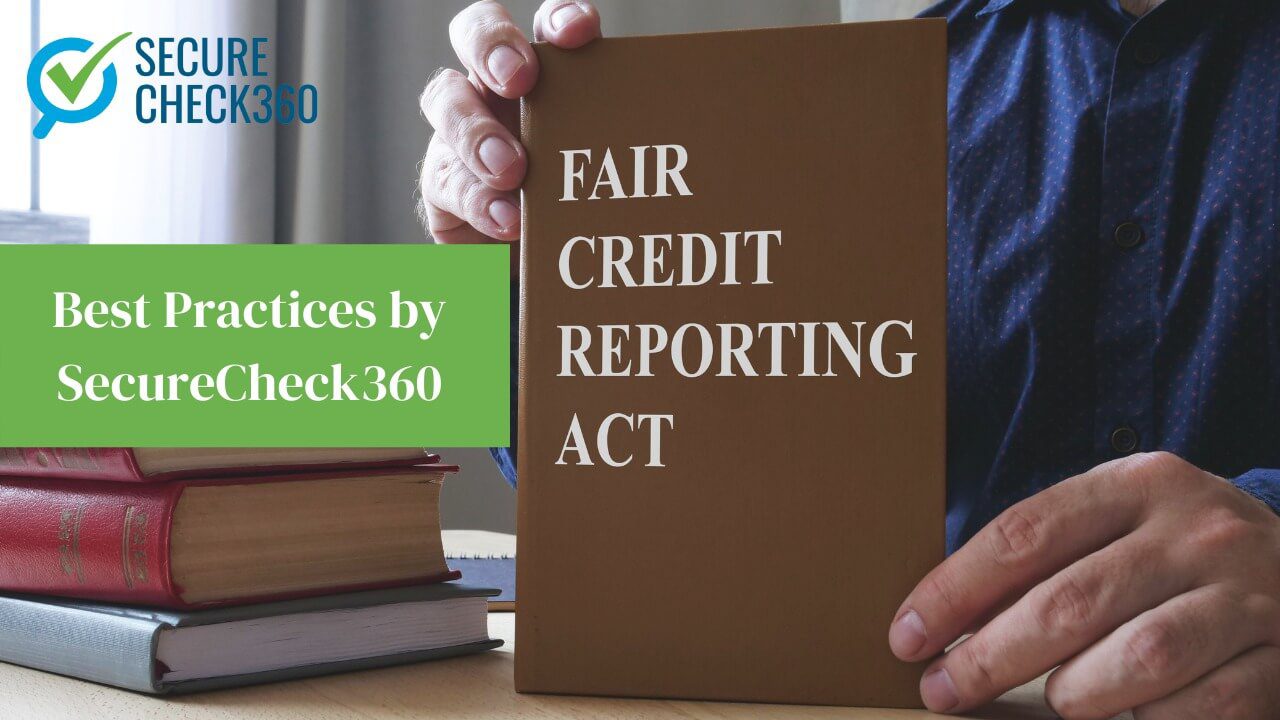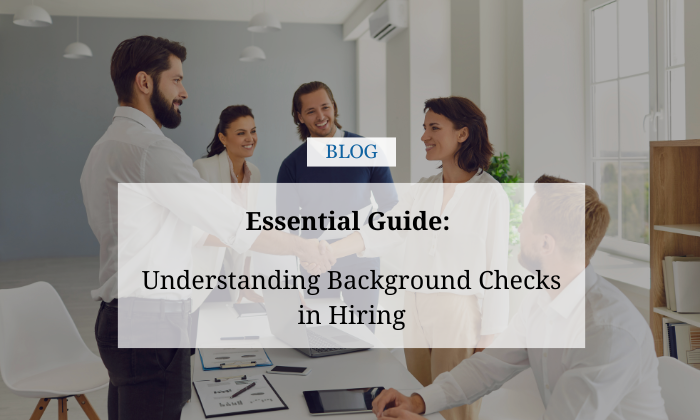The Fair Credit Reporting Act passed in 1970, is a federal law that regulates the credit reporting industry. The FCRA is a law that governs the collection, assembly, and use of consumer information. It provides a framework for the credit reporting system in the United States, including consumer credit information. FCRA also regulates the practice of Consumer Reporting Agencies that collect and compile consumer information into reports for use by credit grantors and insurance companies.
The act gives consumers the right to access their credit reports and dispute any inaccurate information. It also requires credit bureaus to provide consumers with a free copy of their credit report every year. The act has been amended several times over the years, most recently in 2015, to expand consumer protections.
What employers should know about the FCRA and its impacts?
According to a study conducted by the Professional Background Screening Association (PBSA), the U.S. Department of Labor reports that 93% of corporations within the zip code perform some type of background screening. This percentage is unsurprising since screening for potential hires is crucial to the smooth running of a company’s day-to-day operations while also protecting its employees and only assets.
The Fair Credit Reporting Act (FCRA) is a federal law that regulates the use of credit reports by employers. The FCRA requires employers to get the consent of job applicants before they run a credit check, and it prohibits employers from discriminating against job applicants based on their credit history. Employers who violate the FCRA can be sued by job applicants. As a business that uses third parties to conduct background checks on job candidates or existing employees, you are obligated to follow the federal
Fair Credit Reporting Act (FCRA).
FCRA Best Practices for Employers
Employers are constantly looking for ways to improve their business. There are many
best practices that employers can implement to be more successful. Here are some
practices that employers should continue to keep in mind:
- Inform the individual that a criminal background check may be performed for occupational purposes.
- Authorize the individual for the criminal background report to obtain the report.
- If a criminal report contains any negative info that might prevent you from taking various actions or from agreeing to a particular candidate for a position, you must provide a copy of this report to the candidate and the FCRA Summary of
Rights. - Give your potential employee enough time to contact the courtroom to negotiate the background check report before finalizing your hiring decision.
- If the appropriate time has passed, you may resort to adverse action. Let the person know that you will take this adverse action. Generally, notice should be given, but it allows you to communicate in writing as well.
- Broad across-the-board criminal background exclusions should be limited.
- Make efforts to avoid and steer clear of broad criminal offense classifications.
- Assess individual criminal justice process applicants on an individual basis.
- Consider state laws restricting the pursuit and usage of criminal public records.
FCRA Tips for Employers Conducting a background check
Get consent from employees before running a credit check
Running a credit check on an employee without consent can lead to legal trouble for the employer. To protect both the employer and the employee, it is best to get written consent from the employee before running a credit check. This will help to ensure that everyone is aware of what is happening and that there are no surprises. Safeguarding data While many companies have very strict policies regarding the protection of employee data, more and more are following a model where the information is shared
only with those who need it. This includes making sure that employees are trained on how to handle their own personal information.
Securely destroy all old internal reports
You should properly shred, pulverize, or burn paper documents and sanitize electronic documents in order to prevent accessing or reconstructing them.
Wait five days before making a final determination
While the statutory provision pertaining to the Fair Credit Reporting Act doesn’t explicitly say it, courts and FTC guidance advise waiting five days before the decision-making process any time the applicant is informed about the information that may disqualify her from employment.
Review state and local background check laws
Just be sure to find out about the state laws where your business is working and employing individuals. Some states prohibit the sole proprietor or business entity from considering or inquiring into certain types of employee records for employment. As an example, California does not allow companies to choose or seek information about certain types of convictions, including an arrest or detention.
Position the notice with a clear, different indicator
Be sure that it’s a separate written document. Don’t forget to not simply include it in the job application. Be as distinct as possible when making the notice.
Hire a PBSA-accredited background screening firm
When it comes to background screening, you want to make sure you are getting the best possible service. One way to do that is by hiring an FCRA-compliant accredited firm like Securecheck360. We ensure that your screening process is as thorough and accurate as possible. Being PBSA accredited means that all screenings have been through a rigorous process that evaluates based on best practices and controls against industry standards.
Conclusion
By following the best practices for employers above, you can ensure your business is in compliance with the FCRA when hiring employees and when making retention decisions. Remember, it is always important to consult with an attorney if you have any questions about the FCRA or how it applies to your specific business. The Fair Credit Reporting Act is a complex law with many stipulations that employers and employees should be aware of. If you have any questions about the Act or employee background checks, be sure to consult with an employment lawyer.
Alternatively, you can check out the professional background check services provided by
Securecheck360, in compliance with the Fair Credit Reporting Act (FCRA).







